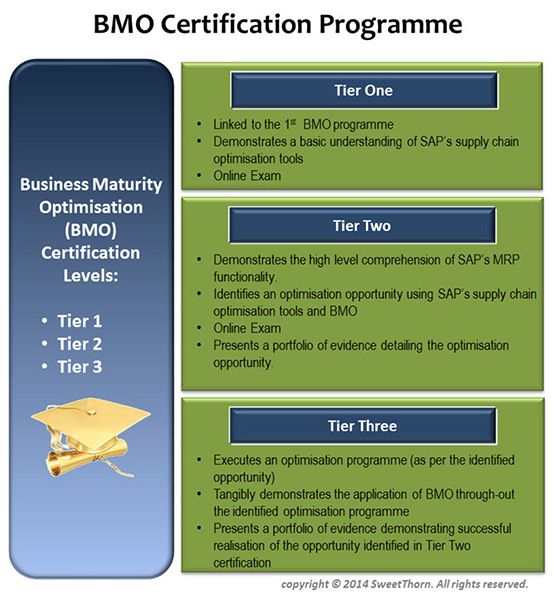Mostly, this confirmation is realised by some form of external review, education, or assessment and should establish if the individual has the necessary level of competency to complete a job or task. The traditional mechanism for assessing this competency is usually done through the passing of an examination.
Certification is a crucial component to SweetThorn’s supply chain optimisation methodology (Business Maturity Optimisation). Our certification approach follows a tiered system which consists of three Tiers, each one representing a higher level of competency. SweetThorn’s view on Certification is that which follows the definition provided above, namely that it should not only be an assessment of an academic understanding of how SAP is used to optimise supply chain performance, but also a tangible demonstration of the individual’s ability to apply the knowledge they have obtained. For this reason Tier 2 and Tier 3 certification require presentations of a Portfolio of Evidence, whereby Certification Candidates can tangibly demonstrate how they have continued to use SAP’s supply chain optimisation tools to identify and deliver the next level of supply chain improvement (click here for a diagram of SweetThorn’s Certification Programme).
The purpose of any professional certification is to provide official and public recognition of an individual's competencies and capabilities in a professional subject area. And so I would like to publically congratulate and recognise the most recent additions to SweetThorn’s BMO Certified Alumni.

Debbie Watson, Qubekani Dlodlo, Scott Wilkinson, Jessica Wright, Kenny Archer, Monika Matika, Steven Freemantle
Absent: Josie Gaglio, Marco Antoniolli & Dieter Kieck

